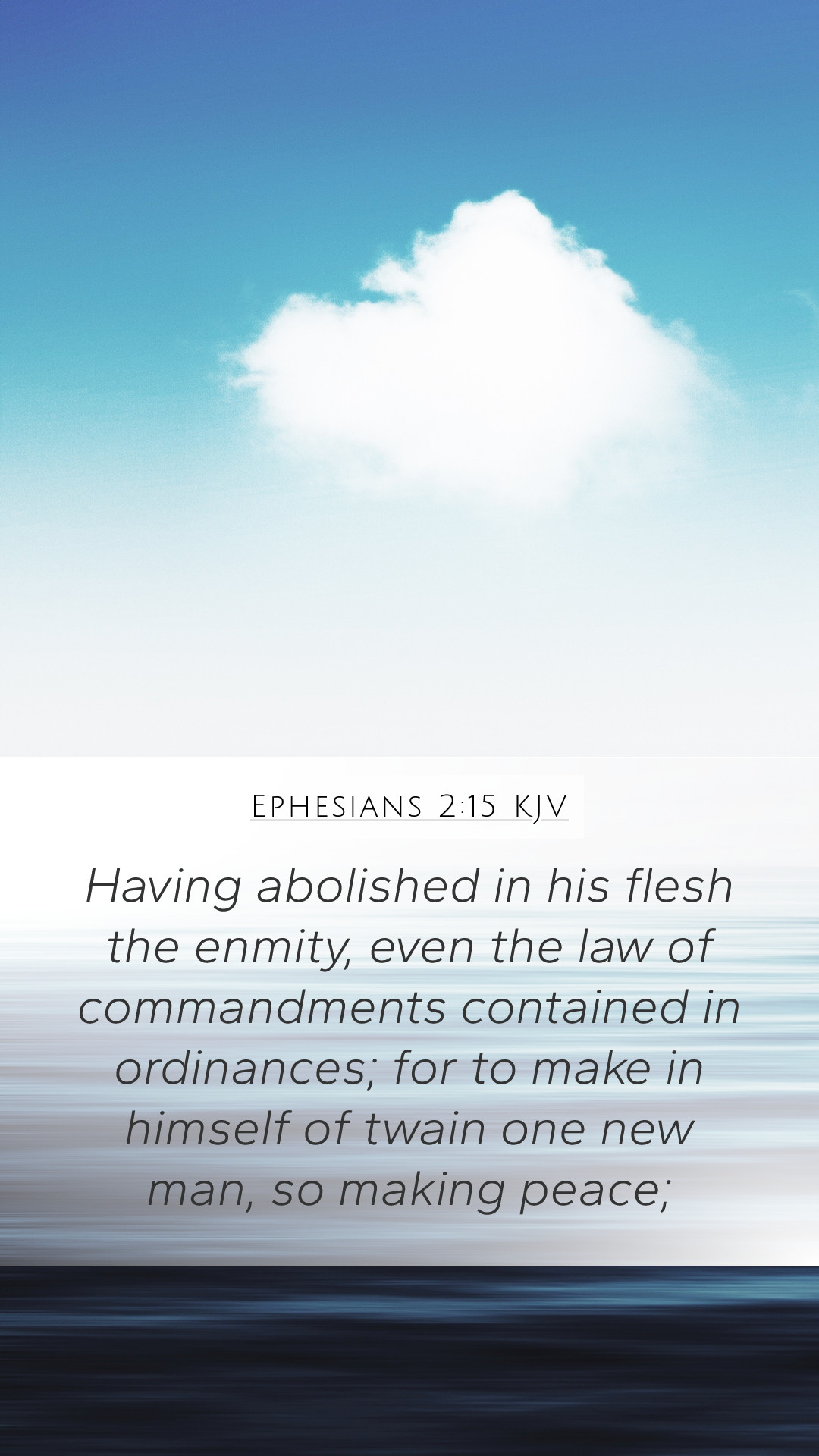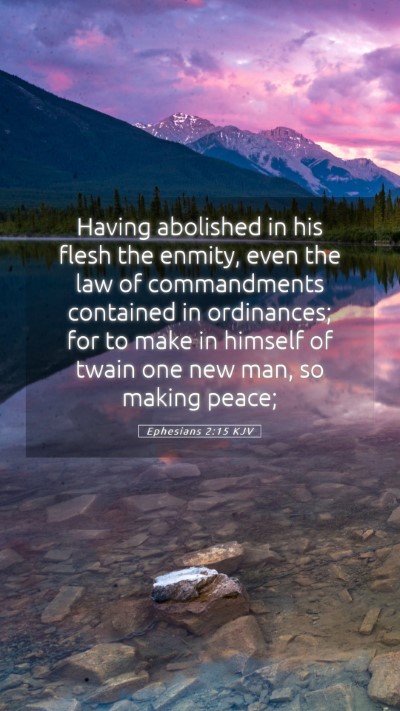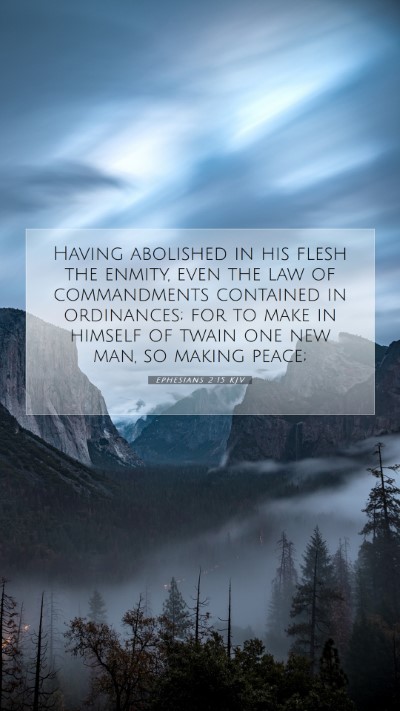Ephesians 2:15 - Bible Verse Explanation
The verse Ephesians 2:15 states, "By abolishing in his flesh the law of commandments and ordinances, that he might create in himself one new man from the two, thus making peace." This verse encapsulates the profound transformation brought about by Jesus Christ in relation to the Law and its commandments, merging different groups into a new unity.
Meaning of Ephesians 2:15
In order to fully grasp the meaning of this Bible verse, it is instrumental to explore the insights provided by renowned biblical commentators such as Matthew Henry, Albert Barnes, and Adam Clarke. Their analyses provide us with a deeper understanding of its theological implications and practical applications.
Matthew Henry's Commentary
Matthew Henry highlights that this verse signifies Christ's role in nullifying the ceremonial laws of the Old Testament that previously separated Jews from Gentiles. He suggests that Jesus does not merely set aside the law, but rather transforms it, establishing a new covenant where both Jews and non-Jews are unified in Christ. This act is a means of creating "one new man," emphasizing the importance of peace and unity among believers.
Albert Barnes' Insights
Albert Barnes elaborates on the phrase "in his flesh," indicating that Jesus' sacrificial death was pivotal in abolishing the Old Testament regulations. He explains that the "commandments and ordinances" referred to encompass both moral and ceremonial aspects of the Law. Barnes emphasizes that through this abolition, the barriers that once divided humanity are transcended, facilitating reconciliation and harmony among differing ethnic and social groups within the body of Christ.
Adam Clarke's Analysis
Adam Clarke offers an in-depth exposition on the significance of "making peace." He affirms that the peace established through Christ extends not only between God and humans but also among humanity itself. Clarke indicates that this new creation implies the formation of a unified church body, where every believer finds equal standing irrespective of their background. Through Christ, believers are invited to live out this peace daily, reflecting the reconciliatory work accomplished on the cross.
Implications of Ephesians 2:15
Ephesians 2:15 takes on critical significance in understanding Scripture, as it invites believers into a deeper relational unity. Here are the key takeaways regarding implications:
- Reconciliation: The verse signifies that both Jews and Gentiles are reconciled to God and to each other, which underscores the theme of unity in diversity.
- The New Covenant: It indicates the transition from the old covenant of the Law to the new covenant of grace established through Christ.
- Peace of Christ: The peace mentioned is multifaceted, extending internally within believers and externally in their relationships and communities.
Applications for Daily Life
Understanding Ephesians 2:15 challenges believers to apply its teachings in practical ways. Here are some applications:
- Fostering Unity: Since Christ has made peace, Christians are called to actively pursue unity within their communities and churches, breaking down barriers that divide.
- Embracing Diversity: Recognizing and valuing the diversity within the Body of Christ promotes a deeper understanding of reconciliation.
- Living Out Peace: Believers should reflect the peace of Christ in their relationships, aiming for understanding and forgiveness.
Bible Cross References
To enrich the understanding of Ephesians 2:15, consider these related Bible verses:
- Romans 10:12: "For there is no distinction between Jew and Greek; for the same Lord is Lord of all, abounding in riches for all who call on Him."
- Galatians 3:28: "There is neither Jew nor Greek, neither slave nor free, nor is there male and female, for you are all one in Christ Jesus."
- Colossians 3:11: "Here there is no Gentile or Jew, circumcised or uncircumcised, barbarian, Scythian, slave or free, but Christ is all, and is in all."
Conclusion
Ephesians 2:15 stands as a powerful testament to the transformative work of Christ in establishing unity and peace among believers. Through the insights gleaned from public domain commentaries, we gain a comprehensive understanding of this scripture, facilitating better Bible verse meanings, interpretations, and applications in our daily lives. For those engaging in Bible study groups or seeking online Bible study resources, recognizing the significance of this verse can enhance understanding and spur discussions on biblical exegesis and scripture analysis.


